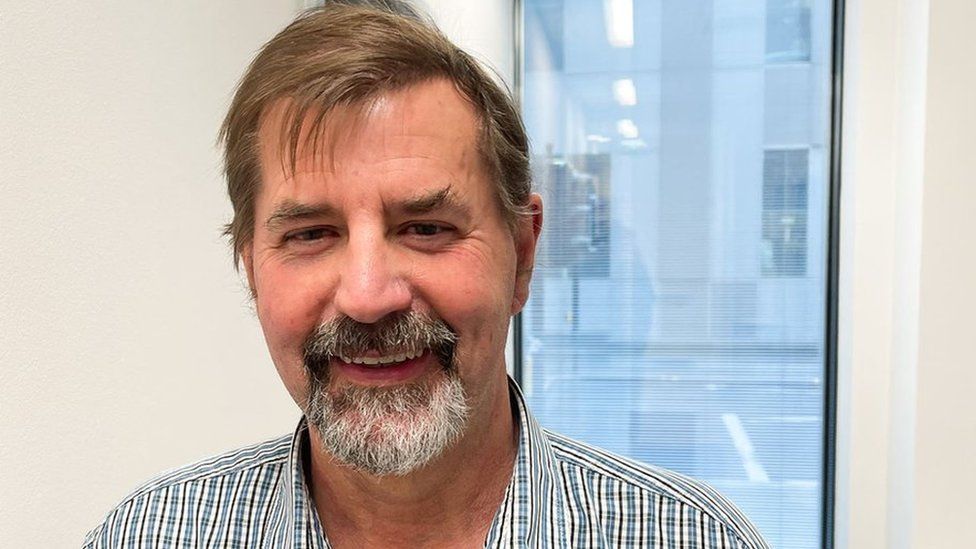
Steve Gotts, 63, said the risk of going blind prompted him to take part in the trial
A Merseyside grandad has become the first person in the world to be given a new medication that could prevent him from losing his eyesight.
Steve Gotts, 63, who has lived with diabetes for 30 years, is receiving the treatment at the Royal Liverpool University Hospital as part of a trial.
He has been given a tablet to reduce effects of diabetic maculopathy.
Mr Gotts said the risk of going blind and not seeing his grandchildren grow-up promoted him to take part.
The Bootle grandad was the first of 24 people across the world to be given a dose of Danegaptide, a tablet-based medication to reduce the effects of diabetic maculopathy, a condition caused by a build-up of excess fluid in the back of the eye which puts patients at risk of losing their eyesight.
Currently it can only be treated at an advanced stage with injections or laser to the back of the eye.
Image source, LUHFT
The clinical team in Liverpool are the first in the world to administer the new treatment
In the UK, nearly all patients diagnosed with type 1 diabetes and almost two thirds of patients with type 2 diabetes have signs of damage to the back of the eye within 20 years of diagnosis, a Liverpool University Hospitals NHS Foundation Trust spokeswoman said.
It is hoped the new treatment being trialled at St Paul’s Clinical Eye Research Centre at the Royal Liverpool University Hospital will prevent or prolong deterioration.
Dr Phil Burgess, Honorary Consultant Ophthalmologist at Liverpool University Hospitals said: “We are so proud to be the first clinical team in the world to administer this new treatment for diabetic maculopathy and bring this study to our patients here in Liverpool and beyond.
“This new drug could mean that injections into the back of the eye may not be necessary for patients suffering with this condition, instead replacing this with a tablet-based treatment which is a much more comfortable treatment for patients.”
Mr Gotts said: “I am proud to be the first patient in the world to try this treatment, which will hopefully not only help save my sight, but others’ sight as well.”
The trial is part of a partnership between St Paul’s Clinical Eye Research Centre at the Royal Liverpool University Hospital, the University of Liverpool and Breye Therapeutics.
Why not follow BBC Merseyside on Facebook, X and Instagram? You can also send story ideas to northwest.newsonline@bbc.co.uk
Related Topics
Related Internet Links
The BBC is not responsible for the content of external sites.







